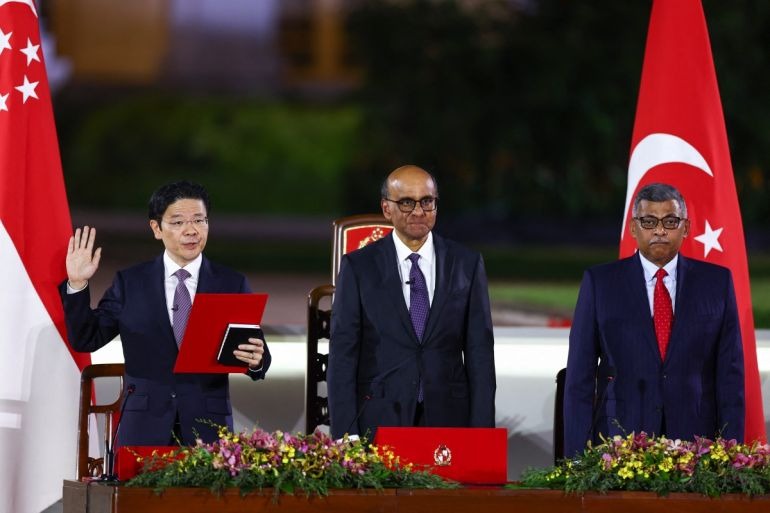Lee Hsien Loong Bows Out After Two Decades of Leadership

In a historic moment for Singapore, Lawrence Wong has been sworn in as the nation’s new prime minister, marking the end of Lee Hsien Loong’s 20-year tenure. The carefully planned transition aims to ensure the stability and continuity of leadership in the prosperous city-state.
Wong, 51, hails from the “4G” leadership team—an emerging generation of politicians selected by the long-ruling People’s Action Party (PAP). This transition positions Wong as Singapore’s fourth prime minister since its independence in 1965.
A New Era of Leadership
On Wednesday, Wong took the oath of office in a televised ceremony at the national palace, making history as the first Singaporean leader born after the country’s independence. He will maintain his role as finance minister while leading the nation.
Wong succeeds Lee Hsien Loong, the 72-year-old son of Singapore’s founding father Lee Kuan Yew, who was in office until his passing in 2015. Lee Hsien Loong’s planned retirement was delayed due to the COVID-19 pandemic and a transition hiccup when his initially chosen successor stepped down in 2021.
Wong has pledged to lead with “humility and a deep sense of duty” towards Singapore’s 5.9 million residents, promising to dedicate “every ounce of my energy” to the nation.
Rise to Prominence
Wong gained significant attention in 2020 as the co-chair of the pandemic task force and was designated as Lee’s successor in April 2022. His leadership journey included a promotion to deputy prime minister and spearheading a public consultation to establish a “social compact” addressing sustainability, inequality, and employment issues.
On Monday, Wong announced a minor cabinet reshuffle, promoting the trade minister to deputy prime minister, emphasizing the importance of continuity and stability. A more substantial reshuffle is anticipated following an election expected by next year.
Maintaining Political Stability
Lee Hsien Loong will continue to serve in Wong’s cabinet as a senior minister, maintaining the influence of the long-serving Lee family. Lee Kuan Yew, after stepping down in 1990, had remained in his successors’ cabinets for 21 years in various senior roles.
In his final major speech on May 1, Lee Hsien Loong urged the populace to support Wong, highlighting that stable politics have enabled Singapore’s long-term planning. “I feel a sense of satisfaction and completeness,” an emotional Lee expressed.
Challenges Ahead
Opposition leader Pritam Singh acknowledged the challenges Wong faces amid a volatile global environment and significant domestic generational shifts. Singh assured that under Wong’s leadership, the Workers’ Party would continue to play its legislative role to promote Singapore’s interests.

